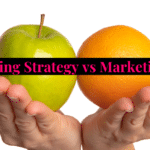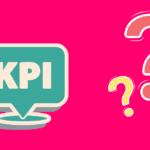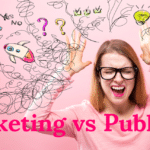Digital Marketing vs Affiliate marketing, there are huge differences, but there are many common similarities, still these terms intersect and it can be confusing.
So, what’s the difference between digital marketing and affiliate marketing?
Digital marketing is a broad term that encompasses all online marketing efforts, including search engine optimization (SEO), social media marketing, email marketing, and content marketing.
Affiliate marketing, on the other hand, is a performance-based marketing strategy where businesses reward affiliates for bringing in customers or sales through their own marketing efforts.
This article will provide an in-depth comparison of digital marketing and affiliate marketing, breaking down their respective strategies, benefits, and potential drawbacks.
We will also explore how these two approaches can be integrated to create a more comprehensive marketing strategy.
Let’s dive in!
What is Digital Marketing?

Very simply, digital marketing is the practice of promoting and selling products or services using digital channels such as search engines, social media, email, and other websites.
This approach allows businesses to connect with their target audience, build brand awareness, and drive sales in the online sphere.
There are many digital marketing methods, including search engine optimization (SEO), content marketing, social media marketing, pay-per-click (PPC) advertising, email marketing, and influencer marketing.
Let’s look at the key components.
Key Components of Digital Marketing

- Search Engine Optimization (SEO): The process of optimizing your website to rank higher in search engine results pages, improving visibility and organic traffic.
- Content Marketing: Creating and distributing valuable, relevant, and consistent content to attract and retain a clearly defined audience.
- Social Media Marketing: Using social media platforms to connect with your audience, build brand awareness, and drive website traffic and sales.
- Email Marketing: Utilizing email to promote products or services, maintain customer relationships, and keep your audience informed about your brand.
- Influencer Marketing: Collaborating with influential individuals to promote your products or services to their audience.
- Pay-Per-Click (PPC) Advertising: A model of internet marketing in which advertisers pay a fee each time their ad is clicked, driving traffic to their websites.
- Video Marketing: Incorporating videos into your marketing strategy to promote your products or services, engage with your audience, and improve your search engine rankings.
Now you’ve got an overview of digital, let’s run through the basics of affiliate marketing.
What is Affiliate Marketing?

Affiliate marketing is a performance-based marketing strategy where businesses (advertisers) partner with individuals or other businesses (affiliates) to promote their products or services.
What do they get for doing it? a commission on each sale or lead generated of course.
Boom!
With, affiliate marketing is a mutually beneficial relationship where both parties benefit. Advertisers gain exposure and sales, while affiliates earn money by promoting products or services they believe in.
Now, let’s check out the key components in affiliate marketing.
Key Components of Affiliate Marketing
- Affiliate: An individual or business that promotes products or services of a company in exchange for a commission on each sale or lead generated through their marketing efforts.
- Advertiser (Merchant or Retailer): The company that offers products or services to be promoted by affiliates. Advertisers provide affiliates with unique tracking links and reward them for successful sales or leads.
- Affiliate Network: A platform that connects advertisers with a network of affiliates. Affiliate networks facilitate the tracking of sales, payments, and performance metrics.
- Commission Structure: The agreed-upon method for compensating affiliates. Common commission structures include pay-per-sale (PPS), pay-per-lead (PPL), and pay-per-click (PPC).
- Tracking System: The technology used to track and attribute sales or leads to the appropriate affiliate. This ensures that affiliates are credited for their marketing efforts.
- Promotional Methods: The various strategies and channels used by affiliates to promote products or services, including content marketing, social media marketing, email marketing, and paid advertising.
- Cookies: Small pieces of data stored on a user’s device that help track their interactions with affiliate links. Cookies play a crucial role in attributing sales or leads to the correct affiliate.
- Affiliate Disclosure: A legal requirement for affiliates to disclose their relationship with the advertiser when promoting products or services. This ensures transparency and helps maintain trust with the audience.
Now you have an idea of the very basics, let’s discuss the 5 main types of affiliate marketing
5 Main Types of Affiliate Marketing
Affiliate marketing can be broken down into 5 main types, let’s check them out.
- Product Review Websites: These websites focus on providing in-depth, unbiased reviews of various products. They often include affiliate links to the reviewed products, allowing readers to purchase after reading the review.
Partner Program has an extensive list here for you to investigate further. - Influencer Marketing: Influencers are individuals with a large following on social media platforms. They promote products or services to their audience and often include affiliate links in their content.
We would of all been bombarded with some sort of influencer marketing, especially if you spent time on TikTok or Instagram! - Coupon Websites: These websites compile a list of coupons and deals for various products and services. They earn a commission when users click on the affiliate links to redeem the discounts.
Lifewire has a comprehensive list of the top coupon websites for you to better see what we mean. - Blogging: Bloggers create content around a specific niche and use affiliate marketing to monetize their blogs. They write articles related to the products they are promoting and include affiliate links within the content.
Hey, you’re on a blog now! But, really, you are, and thanks for being here! - Video Content: With the rise of video platforms like YouTube, video content creators have become popular affiliates. They create videos reviewing products or demonstrating their use and include affiliate links in the video description.
Check out this list to see the top video content creators going around.
Key Differences Between Digital and Affiliate Marketing

OK, so you’ve got a feel for what is what and which is which when it comes to both digital and affiliate marketing.
Now, let’s explore the real differences between the two.
- Objectives: Digital marketing focuses on promoting a brand’s overall online presence, building awareness, and driving traffic. Affiliate marketing is primarily focused on driving sales and leads through performance-based incentives.
- Payment Structure: In digital marketing, businesses typically pay for advertising space or services regardless of the results achieved. In affiliate marketing, affiliates are only compensated when a specific action, such as a sale or lead, is generated.
- Risk: Digital marketing carries a higher upfront cost, as businesses invest in advertising campaigns without a guaranteed return on investment. Affiliate marketing transfers the risk to affiliates, who only earn commissions when they deliver results.
- Control: In digital marketing, businesses have full control over their campaigns, targeting, and messaging. In affiliate marketing, advertisers have limited control over how affiliates promote their products or services.
- Relationships: Digital marketing focuses on building direct relationships between businesses and their target audience. Affiliate marketing leverages existing relationships between affiliates and their audience to drive sales.
- Scalability: Digital marketing campaigns can be scaled up or down based on the budget and objectives. Affiliate marketing’s scalability depends on the size and effectiveness of the affiliate network.
- Tracking and Analytics: Digital marketing relies on advanced tracking and analytics tools to measure the performance of campaigns. Affiliate marketing uses tracking systems to attribute sales or leads to specific affiliates.
- Regulations: Digital marketing is subject to various advertising regulations and guidelines. Affiliate marketing also has specific regulations, such as the requirement for affiliates to disclose their relationship with the advertiser.
Cool. So you know how the differences between the two.
I know what you’re thinking, well I hope you are!
How do they work together?
How Affiliate Marketing and Digital Marketing Work Together

Affiliate marketing and digital marketing can work together to create a powerful and comprehensive marketing strategy.
In fact, Businesses can leverage digital marketing techniques to promote their affiliate programs, attract high-quality affiliates, and provide them with the necessary resources to succeed.
In turn, affiliates can utilize various digital marketing channels and strategies to promote the products or services of the advertisers they are partnered with.
By integrating affiliate marketing into their digital marketing efforts, businesses can:
- Expand their online presence and reach new audiences through the affiliate’s marketing channels.
- Gain access to a diverse pool of affiliates with unique marketing expertise and strategies.
- Benefit from a performance-based payment model, ensuring a positive return on investment.
- Drive sales and leads while only paying for the results achieved by affiliates.
- Capitalize on the trust and credibility established by affiliates with their audience.
- Establish a network of brand advocates who are incentivized to promote and drive sales for the business.
- Create a cost-effective and scalable marketing strategy by utilizing the affiliate’s existing online marketing efforts.
Now, let’s have a look at some common successful integration techniques.
3 Examples of Successful Digital and Affiliate Marketing Integration

1. Email Marketing and Affiliate Marketing:
A business can create an email marketing campaign specifically targeting its affiliates, providing them with valuable resources, updates, and promotional materials to help them effectively promote the products or services.
Affiliates can use email marketing to reach their audience and share relevant content, including promotions and exclusive deals.
2. Content Marketing and Affiliate Marketing:
Businesses can create high-quality, SEO-optimized content on their websites to attract potential affiliates and inform them about the benefits of joining the affiliate program.
Affiliates can leverage content marketing to create in-depth product reviews, comparison articles, and informative blog posts that include their affiliate links.
3. Social Media Marketing and Affiliate Marketing:
Businesses can utilize social media platforms to promote their affiliate program, engage with potential affiliates, and share success stories to inspire others to join.
Affiliates can use social media marketing to create engaging posts, share their experiences, and promote the products or services to their followers, driving traffic and sales through their affiliate links.
By integrating affiliate marketing into their digital marketing strategy, businesses can effectively utilize the expertise and reach of their affiliates to drive sales, expand their online presence, and achieve their marketing objectives.
Want to learn more about affiliate marketing and how it works? Check this clip out, it’s awesome.
Wrap Up
In the battle of digital marketing vs. affiliate marketing, there is no clear winner, as both strategies offer unique benefits and can complement each other when integrated effectively.
While digital marketing focuses on building a brand’s online presence and driving traffic, affiliate marketing is a performance-based strategy that rewards affiliates for generating sales or leads.
By understanding the differences and similarities between these two approaches, businesses can create a well-rounded marketing strategy that leverages the strengths of each method to achieve their goals.
So, whether it’s enhancing brand awareness, increasing sales, or reaching new audiences, the key is to adapt and evolve your marketing approach to meet the ever-changing demands of the digital landscape.
Happy Marketing Peeps!
Frequently Asked Questions
How is digital marketing different from affiliate marketing?
Digital marketing is a broad term that encompasses all online marketing efforts, including search engine optimization, social media marketing, email marketing, and content marketing.
Affiliate marketing, on the other hand, is a specific type of digital marketing where businesses reward affiliates for bringing in customers or sales through their own marketing efforts.
What are the main components of affiliate marketing?
The main components of affiliate marketing include affiliates (individuals or businesses promoting products), advertisers (businesses offering products or services), affiliate networks (platforms connecting affiliates with advertisers), commission structures, tracking systems, promotional methods, cookies, and affiliate disclosures.
How do digital and affiliate marketing work together?
Digital marketing can be used to promote affiliate programs, attract high-quality affiliates, and provide them with the necessary resources to succeed.
Affiliates can leverage various digital marketing channels and strategies to promote the products or services of the advertisers they are partnered with.
Can you provide an example of successful digital and affiliate marketing integration?
A business can use email marketing to target its affiliates, providing them with valuable resources and promotional materials. Affiliates can use email marketing to reach their audience and share relevant content.
Another example is the use of social media platforms. Businesses can promote their affiliate program on social media, and affiliates can create engaging posts and share their experiences.
What are the key differences between digital marketing and affiliate marketing?
Digital marketing focuses on promoting a brand’s overall online presence and building awareness, while affiliate marketing is primarily focused on driving sales and leads through performance-based incentives.
Digital marketing involves an upfront cost and risk, while affiliate marketing transfers the risk to affiliates, who only earn commissions when they deliver results.
How do digital marketing and affiliate marketing benefit businesses?
Digital marketing helps businesses expand their online presence, reach new audiences, and drive traffic. Affiliate marketing allows businesses to capitalize on the reach, expertise, and trust of their affiliates, driving sales and achieving marketing objectives.










